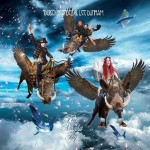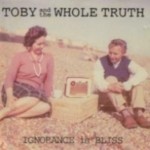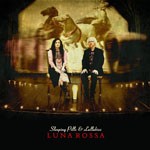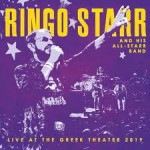Share the post "10Q’s with STEVE WATTS (DEMON DUDE’S REVENGE)"
Steve Watts, the former keyboards player/arranger with Demon, has a new musical project underway Demon Dude’s Revenge and the first album ‘An Adolescent Fantasy (Vol 1)’ is out now. Over to Steve…
1. What are you currently up to?
Well, it’s a very busy time at the moment. As well as promoting the first DDR album I’m busy working on the second and aiming for a 2013 release of the full album. I’m also in the fist stages of setting up a music publishing/production company to support both this and other projects, including my instrumental synthesizer work. I hope to branch out and support other musicians and bands in the future as well as become involved with TV and soundtrack production.
2. Could you take us through the new album ‘An Adolescent Fantasy (Vol 1)’?
A tricky question, as I’m still working my way through the creative process with Volume 2, Volume 1 being the first half of the full album. I’ve several ideas for the concept. One being the relationship between our adolescent selves and our relative personalities as we age. No matter how old we get (especially us creative types) we appear to carry (the burden) of our adolescent dreams and personas with us, either buried deep within us or explicitly on the surface. This can cause no end of problems; we still hanker for the adolescent dreams of the past regardless of the fact that they have now perhaps become distorted and ever more un-realistic.
I think that this can often lead to bitterness and resentment when reality simply fails to live up to expectations, and in order to cope with this we manipulate the truth and in a sense, create new realities that are far removed from actuality.
For some happy individuals I guess this is fine. They are happy trapped in their version of the past that they have bought into the present, and will no doubt take into the future, but when we do it en-mass and organise ourselves into believing that our perspective is the only “truth”, then I think this narrow perspective really prevents us from engaging with the realty of the present (and other people who don’t share our point of view) and prevents us from moving forward both as individuals and as a race.
And we are really now more than ever before, aided (or depending on your point of view, prevented) by new digital communications technologies. In our new super fast Broadband society it seems to me that our past present and possible futures, including our sense of time and reality, has become so distorted and entangled that they’ve actually begun to co-exist.
News casts of starving children and civilians blown to bits air along-side reality TV shows; politics have become big business soap-opera aided by TV Companies and advertising; the Arts practically meaningless; digitally enhanced fashion models and make-over shows help us to be and look 100% perfect and show us how to turn our homes into a perfect earthly paradise regardless of the fact that no-one can afford it; war is an exciting new computer game for children to play in the living room, banks are criminals and criminals are heroes, ordinary people become famous overnight for absolutely no reason what so ever whilst tabloids exploit every nuance of their nervous breakdown and subsequent fashionable rehab. I’m sure by now even God’s booked himself in.
I think that any original contexts have become so de-constructed that we’ve reached the point where they’ve become inherently meaningless. Our new Post-Modern existence rides on the wave of a superfast digital highway where everything is practically instantaneous you know? It allows us to visit all possible realities and histories within seconds at the push of a button and communicate like never before…if only we had the time and the patience.
And the media consistently sells us this romanticised idea that youth represents some “golden age” and we hold on to this notion, and we all buy into it to some extent. Regardless of any point of view or reality that might suggest the contrary, we wrap ourselves in this security blanket of the past, clinging onto it as though it were a life raft. I’m sure this is all very reassuring; true freedom is a scary place, and I’m sure most people would prefer to live their lives without it, but on a broader scale I think as a race were’ holding onto some pretty dire and incredibly outmoded ideas that keep us trapped in some pretty horrific scenarios. We’ve created our own ‘Adolescent Fantasy’: and a big part of it is a rampaging monster, which wants to protect itself and it’s ideals no matter how much this creates divisions, isolation, and conflict.
Who knows, perhaps this is the way it’s supposed to be? Perhaps ultimate destruction is the way forward?
For the new album “An Adolescent Fantasy” I have in mind the “listener”. Someone alone in their own private world, and thinking about their future, whilst creating a compilation/mix tape of their favourite music, which I guess for most of us beyond a certain age, is usually firmly entrenched in the past.
The whole DDR album is effectively the compilation tape that the “listener” is creating, and each song represents a “snapshot”, either real or imaginary.
This is why there are many so many different styles of music on “An Adolescent Fantasy”, all using different combinations of musicians, each song being represented by a different “band” as on a compilation album. Throughout the album you’ll also hear someone moving about, putting on different vinyl albums from their treasured collection – creating effectively, the DDR album that you are listening to…. each track represents a different scenario from that “listeners” life or their reaction to something in life that has effected them, which we very often again associate with our favourite music: a “snapshot” set either in the past, present, or possible future in which we are ever present.
I’ve always really liked the idea of the egotistical God-like creator that creates a monster that goes out of control and wreaks revenge. The 1920’s Universal films of Mary Shelleys’ “Frankenstein”, with Boris Karloff as the Monster, had a major influence on me as a child and there are loads of audio samples in the album and visual clues in the graphics from these films and others.
I also like the idea that the creator and monster can be two halves of the same person and either one also be represented as the adolescent or adult, and I like the idea that the creator/monster could be an artist; musician; band; politician; psychologist; scientist; teacher; religious leader; philosopher, or just you and me in our daily lives. There’s also my own autobiographical compilation within the album that includes many nods and winks to Demon and it’s fans.
So…I’ve sewn together and created a musical and conceptual monster in “An Adolescent Fantasy”. It’s a creation of different parts, ideas, genres, musicians and songs that were and still are being created well over a twenty – year period, and it’s not meant to be pretty.
Instead of taking you through the album track by track, I prefer each song to be open to the personal interpretation of whoever listens to it. You create your own meaning depending on where you are on your journey – some tracks you’ll like, some you won’t – you create your own personal compilation…it’s entirely up to you.
I bet you wished you hadn’t asked now.
3. As the album title suggests this is part one. Have you mapped out for yourself what musical journey this project will take? Who has been involved so far musician wise and who would you like to involve in the future?
Not initially. I had two to three albums worth of material, and a beginning and an end…it’s been a matter of then filling in the gaps! I knew that I wanted the first album to be very dark, hard and heavy; the listener is in a very dark place and it stays like that throughout with the odd glimmer of light here and there.
The second album finds the listener on a bit less of a strenuous journey, there’s much more of a feeling of some hopeful resolution but there’s certainly no nicely wrapped up happy endings, both creator and monster are in constant battle throughout the albums progress, even in the duration of one song.
The finale track, “Yesterdays Song”, ends with a death that is equally a birth, and then a final resignation, so I like to think the album at least ends on a glimmer of hope, whatever the outcome.
As far as musicians are concerned I really couldn’t have wished for a better bunch of people to work with. I certainly didn’t want to get in a traditional “band” situation… I guess that’s where the solution came from when I tried to think of how the hell I’d get the same musicians to play so many different styles of music (even more so on DDR Vol. 2). The use of a large number of musicians enabled me to work with the “compilation album” idea I had in mind, so that each track could pretty much have it’s own “band” and singer, etc. It also gave me much more flexibility when it came to arranging the songs.
On “It Message Is…(Brimstone and Treacle)” and “Never Before” for example, I just didn’t think it would work if I used a bunch of 40 – something virtuoso musicians. It would have sounded great I’m sure, but I don’t think the songs would have had the same fire and attitude of someone who was sixteen or seventeen playing them. So that’s exactly what I did- I got a bunch of teenagers to play them live in the studio and that’s exactly how I recorded them. They may not be the most virtuosic performances, but I believe that they certainly have the kind of balls, attitude and emotional intensity that I’m not so sure a bunch of middle-aged men could have successfully pulled off. The opposite is true however of the more introspective songs, where a more “mature” and considered performance is needed.
So DDR Vol. 1 has something like 21 musicians on it (Vol. 2 more new faces) who come in to play the relevant parts for specific tracks, as well as a number of core musicians and engineers who are involved throughout. I suppose this “core” would be the closest DDR gets to be a band. I like to think of it more as a continuous “project”.
4. You have used YouTube a lot to promote various songs. Does a channel like YouTube allow you to promote your music a lot more easily and do you see benefits through sales from these videos?
Well yes, it did until Google got their hands on it and turned it into yet another online exercise in corporate marketing. Both Demon and DDR promotion was going quite well until that point. The plan was to create multiple channels all of which linked into the main DDR website; including the Demon channel which would link into the DDR – Demon Archive page. I’d already begun this process with the main DDR Portal and various related channels stemming off from this.
They were all created using very professional and personalised graphics that looked great, and both DDR and Demon videos were starting to gain attention and support. Since the Google take-over, my plans have been ruined by Google’s incredibly cavalier approach to changing the format layout, totally disregarding the often very creative public market that originally created and sustained YouTube, and have swamped users channels with unrelated content and adverts. Hopefully the company will eventually come to their senses, listen to the website users, and restore YouTube to it’s former glory. Hopefully I can then get the DDR/Demon YouTube sites back on track and this in turn will help to boost sales.
5. Although Demon got press coverage with album reviews in Kerrang! the band never really got the success they deserved. Do you think the name may have held them back and why did the band become such a big hit in say Germany but have a low profile here in the UK?
A difficult question. The name certainly didn’t help as I’ve been constantly reminded by virtually every press review since 1984 to the present day. Personally now, I don’t think the name matters so much as it does within this “Post-Modern” era where original contexts have change or are certainly adaptable; although I will personally forever associate it with the first two albums. There is I think a certain cache to it now the more we become entrenched in nostalgia, and as the band in it’s current line-up appear to have adopted and re-endorsed the image and music of “The Unexpected Guest” from 1982, it almost feels as though the period from 1984 to 1991 hasn’t happened.
Back then though in all honesty, I was rather embarrassed by the name and campaigned to change it during the recording of British Standard Approved. I’m absolutely convinced that it prevented/prevents the band from being more successful in other musical circles, even today.
There are of course many other issues that I think prevented us from changing the name back then that could have worked even more against us if we had done.
One was the fact that Demon were an already established band by 1984 worldwide, and any name change could have alienated already established fans. Secondly Progressive Rock, which the band was already heading into, wasn’t exactly popular around that time (although there was some extraordinary successes with new Neo-Progressive bands, particularly Marillion and cross-over bands like Magnum)
The main problem in my mind is that the music changed so dramatically post “The Unexpected Guest”, and the band have since been constantly trying to appease two very distinct audiences whilst trying to maintain an image (and name) that is rigidly and traditionally confined to a particular genre.
Germany (and many other European countries) are particularly interesting in that they maintain a very devoted following to both this genre and other genres that Demon have encompassed, particularly Progressive Rock, and there always was and still is a very healthy live scene. Britain on the other hand in the 1980’s was obsessed with fashion in guise of intellectualism. It was cool to have a Sociology degree and then work for a music paper as some “ambassador for the people”. Anything that didn’t fit in with the pseudo-intellectual diatribes spouted in say NME or fit comfortably into the commercialised arena of commercial or fashionable rock supported by the likes of Kerrang! or a fashion-oriented DJ, was effectively ignored…and if there was even a sniff of a Progressive Rock element, you were effectively f*cked.
Demon could also have perhaps been accused of being slow to recognise musical changes that were going on all around them – although this was not necessarily a bad thing at the time, as I think we were certainly at at times attempting to furrow our own musical journey.
6. When you joined Demon did you get an equal say in the song writing or did you come into the ‘British Standard Approved’ album with the majority of it already written? After the lukewarm reception to ‘Heart Of Our Time’ (a very underrated album in my view) did the band consider calling it day, especially after the sad passing of Mal Spooner?
British Standard Approved was pretty much fully written by the time I joined the band. The only extra writing I remember was on “First Class”, (which was originally completely instrumental), with extra lyrics and vocal lines added during the recording sessions. My main role on this album (apart from keyboard player), was to program all the soundscapes and to re-arrange the band and the songs, so that the album could now work within the framework of the new synthesizer arrangements. I also added a large amount of extra synth melody lines so that the new arrangements would work fully.
Songs such as Cold In The Air, Touching The Ice, Second Stage, Proxima and Hemispheres were originally just completely guitar and vocal based; it took many months of programming and arranging to get the songs to gel – I think some idiots think you kind of just press a button and the synthesizers do all the work for you!
When it came to Heart Of Our Time, I had some serious pressure on me to fill the boots of Mal Spooner who sadly died during the recording of BSA. Thankfully my programming and arranging skills were honed after BSA, but this was the first commercial album I’d ever seriously also fully composed, and I was still very young and also quite in-experienced in professional recording studios, which I found to be quite daunting places, especially when populated by arsy sound engineers. I was under a serious amount of pressure to come up with the goods, and then on top of that the future of Demon was at stake as it was under serious discussion as to whether or not the band could continue without Mal.
So now I have to play the keyboards, program the sounds, arrange the band, compose the songs, fill the shoes of Mal Spooner, and try my best to help to keep Demon going. This was also on top of extreme personal family issues and an increasing predilection to drug addition. No pressure then.
I think Dave, Mike (Stone), and the band and I did really well under the circumstances and I absolutely agree with you, it’s a very underrated album. It doesn’t always work for sure, and the original production is rather lack lustre, but there are some really great songs and moments on there that I’m really proud of. “High Climber”, “Expressing The Heart”; “Genius”; “Grown Ups”; “Summit” and “One Small Step” are all really strong tracks on many levels. The album also of course, includes my idea to use a coded hidden message using an early Atari ZX Spectrum Computer as far as I’m aware, a completely original first on any album before or since. I get hugely frustrated when the album is undermined, particularly by members of the band – if I met my 22 year old former self I think I’d congratulate him on a job well done and shake his hand.
7. You are behind many of the more progressive and epic numbers the band have done. Did you prefer writing and composing longer songs than the more straight ahead rockers?
Yes. I was always trying to push the limits of Demon with these bigger epic numbers by using Progressive Rock elements although there is a danger of becoming self-indulgent, which certainly happened on occasion. Lengthy songs give you a chance to flex your compositional muscle and experiment with different musical forms and elements that wouldn’t normally be acceptable, and I think when they work well it’s possible to create something really special. I was usually left well alone to create the introductions; orchestrations and electronic soundscapes and band arrangements, although there were a few hilarious “You want to do WHAT?!” type moments…
“Remembrance Day”, “What Do You Think About Hell?”, “Time Has Come”, “Life On The Wire”, “No More Hell On Earth” are all landmark Demon songs and interestingly, they all follow a similar compositional format, using electronic, classical, and progressive arrangement techniques.
“Remembrance Day” uses traditional Celtic folk; New Age electronica; Classical orchestral Romanticism; Hard Rock; Progressive Rock; Heavy Metal; Marching Bands…”What Do You Think About Hell” adds Sampling; Musique Concrete; Avant Gard; Baroque and classical string ensembles to the mix, with Existential and Socio-Political lyrics…I’m not really quite sure how you’d categorise this stuff by this album, it certainly isn’t NWOBHM and going back to your earlier question regarding the bands name, I really didn’t think then (or do now) that “Demon” was strong enough to support the new music we were producing.
There are also other “smaller” epics that also work very well for me: “Grown Ups”, “One Small Step”, “Standing In the Shadow”, “Living In The Shadow”, “Barons Of Darkness”, “Hold On To The Dream”, “Expressing The Heart”…the list goes on.
I don’t think though that any of these songs would have worked so particularly well if it hadn’t of been for the combination of myself and Dave, he could be very open minded and very supportive; the classical/electronic/progressive/metal combination shouldn’t really have worked at all, but somehow it did. It was all very experimental at the time.
I would have really loved to have “pushed the boat out” even more after “Taking The World By Storm” but unfortunately I felt sometimes very restricted. I’m not a great fan of “straight ahead rockers” I’m afraid, and the band then (as now) were very reluctant to abandon them – I can write them, but I get a bit bored to be honest and start f*cking with the formula.
8. What have been the live highlights with Demon and why?
Bristol Beer Keller:
Great venue and always a great audience with fans going bonkers at the front of the stage
Shelleys, Stoke-on-Trent:
I’ve so many fond memories of this place and it’s where I really cut my teeth on the live circuit in my early days with Demon.
Berlin/Eastern Germany:
A wonderful place and wonderful people regardless of the then divisions, and the audiences’ were equally wonderful to.
Sheffield University:
We never got to play many Universities but this one was a classic. The audience went wild and some of the band including myself, were a little over “chemically enhanced” to say the least, so much so that I forgot the band were onstage during my synthesizer introduction. A storming gig.
Rockfabrik; Ludwigsburg:
The gig we recorded live for the “One Helluva Night” album in 1989. Everything a great rock gig should be: hot, sweaty, grimy and extremely loud!
100 Club, London:
Legendary
Some pre-tour pub gig in London:
For seeing Demon manager Mike Stone pinned up against a wall in the toilets by the owner brandishing a Rottweiler dog after asking to be paid (we weren’t and left very quickly)
9. What made you want to start making music and who have been your musical influences?
Nothing made me start really; it’s just something that’s always been there. Music has always seemed as natural to me as eating or going to the toilet, in fact sometimes I wish I could simply turn it off and be a bit “normal”. It’s constantly in my head and can sometimes be a bit oppressive; it’s just something I have to do. If I don’t work on it and get it out of my head it just stays there nagging away – demanding to be heard. I do realise how lucky I am to have this ability, but it can be a mixed blessing.
It would take several pages to list my influences and heroes but I tend to gravitate towards the musical mavericks: Kate Bush, Brian Wilson, Phil Spector, Brian Eno, Mike Oldfield, Tom Waits, Ian Dury, Peter Gabriel. Roger Waters, Philip Glass, Syd Barrett, Peter Hammil, Frank Zappa, Lauri Anderson, Klaus Schulz, Robert Fripp, Rupert Everette, Julian Cope, Daevid Allen, P.J.Harvey, plus of course all those great Progressive, Kraut Rock, Rock/Metal bands and lots of 60’s/’70’s pop and 80’s, 90’s electronica and classical and experimental and film soundtracks…I think music’s in a really good creative place at the moment, underneath all the mainstream manufactured pop fodder there are some real gems…there’s even some good stuff in manufactured pop.
The main problem is the sheer volume of it, I think it’s difficult to find the time to be really discerning.
10. What do you enjoy doing in your time away from music?
I like to travel, and would like to do much more. Quality time with my family though is my main ambition when I’m not working, its very easy to be neglectful and very difficult to put things right when things go wrong, they ultimately have to be very patient with me and I have to try to turn down the volume in my head as best I can.
Anything else to add and a message for your fans…
Well, I’d like to thank everyone who has supported Demon and the new Demon Dudes Revenge project over the years, and everyone who is supporting now and helping to promote the music.
I’d also like to apologise to everyone for the fact that I simply disappeared from the scene for so long. I know by the many emails I receive that there are still a great deal of fans who wish I would re-join Demon, this is highly unlikely to happen I’m afraid. I can assure you that if I ever take Demon Dudes Revenge on the road I’ll also be playing epic Demon tracks in the way that they deserve to be heard.
Hope that everyone enjoys something in the new Demon Dudes Revenge albums – All the best for now.
Links:
Demon Dudes Revenge. Com
http://www.demondudesrevenge.com
DDR – Facebook Portals:
http://www.facebook.com/demondudesrevenge
http://www.facebook.com/pages/Demon-Dudes-Revenge/137200813001194?ref=hl
THE WORKSHOP OF FILTHY CREATION:
http://www.facebook.com/TheWorkshopOfFilthyCreation?ref=hl
Featured Artist: JOSH TAERK
Since early 2020 Josh has been entertaining us with exclusive monthly live sessions,
Check out videos here: https://www.facebook.com/getreadytorockradio
Upcoming sessions:
February 15
March 8
April 12
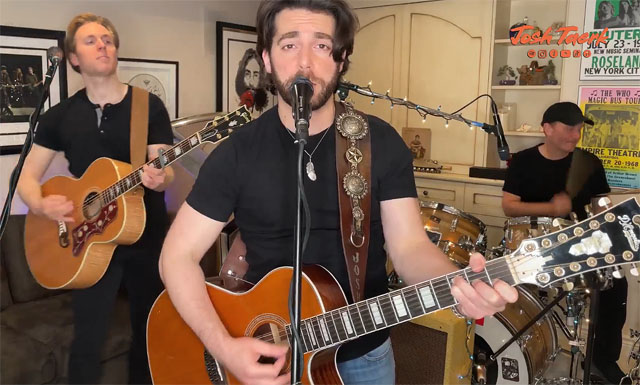
David Randall presents a weekly show on Get Ready to ROCK! Radio, Sundays at 22:00 GMT, repeated on Mondays and Fridays), when he invites listeners to ‘Assume The Position’. The show signposts forthcoming gigs and tours and latest additions at getreadytorock.com. This “Best of 2025 reviewer choices” show was first broadcast on 21 December 2025.
UK Blues Broadcaster of the Year (2020 and 2021 Finalist) Pete Feenstra presents his weekly Rock & Blues Show on Tuesday at 19:00 GMT as part of a five hour blues rock marathon “Tuesday is Bluesday at GRTR!”. The show is repeated on Wednesdays at 22:00, Fridays at 20:00). Pete’s Best of 2025 was first broadcast on 23 December 2025
How to Listen Live?
Click the programming image at the top of the page (top right of page if using desktop)
Get Ready to ROCK! Radio is also in iTunes under Internet Radio/Classic Rock
Listen in via the Tunein app and search for “Get Ready to ROCK!” and save as favourite.
More information and links at our radio website where you can listen live or listen again to shows via the presenter pages: getreadytorockradio.com
Power Plays w/c 26 January 2026
JOANNE SHAW TAYLOR Hell Or High Water (Journeyman Records)
TY FREEMAN One Way Love (indie)
GREY DAZE Monster You Adore (indie)
HOKKA Death By Cupids Arrow (Nuclear Blast Records)
PURPLE DOTS Stared At The Sun (Kycker)
SAINT AGNES Song For Mia (Spinefarm)
STREETLIGHT Shake That Feeling (Frontiers)
Featured Albums w/c 26 January 2026
09:00-12:00 The Best of 2003 – 2025 (Melodic Rock)
12:00-13:00 The Best of 2003 – 2025 (Melodic Hard Rock)
14:00-16:00 The Best of 2003 – 2025 (Singer Songwriter)
Our occasional Newsletter signposts latest additions to the website(s). We also include a selection of recent top albums, based on GRTR! reviewer ratings. The newsletter is sent out a few times a year.
If you’d like to register to receive this occasional mailing please complete the form:
If using a smartphone/tablet please tap here or re-orientate your device
(Note that this registration is separate from site registration which allows you to leave comments and receive daily emails about new content. If you wish to register for this – in addition or separately – please click or tap here – for more information – the form is at the foot of each page. Please read our privacy policy when opting-in to receive emails.
Recent (last 30 days)
Share the post "10Q’s with STEVE WATTS (DEMON DUDE’S REVENGE)"

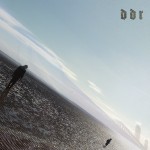
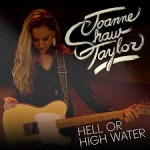
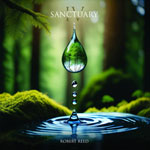
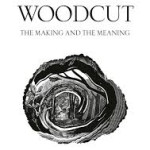
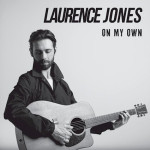
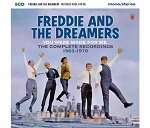
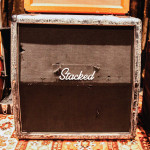
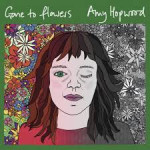
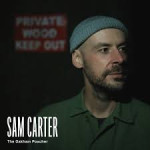
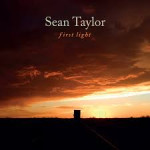
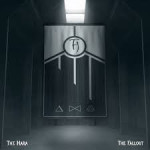
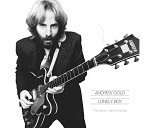
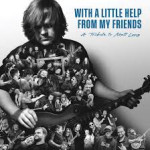

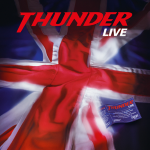
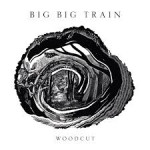
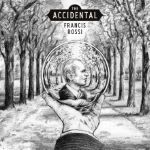
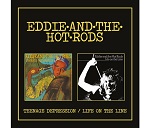
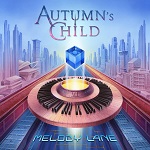
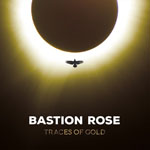
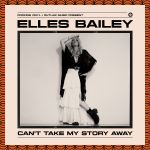
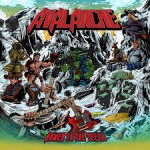
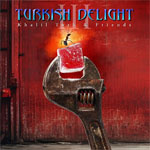

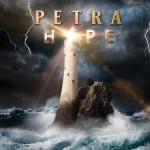

 PDF - you can delete unwanted sections
PDF - you can delete unwanted sections


















